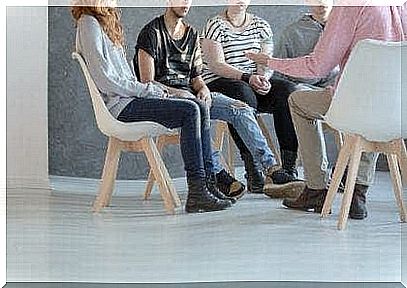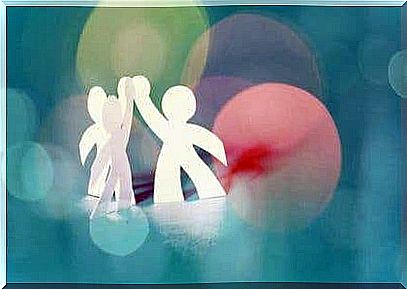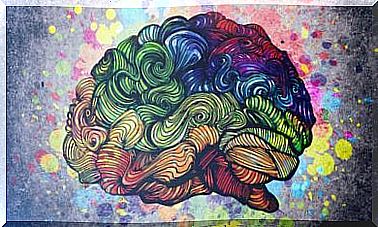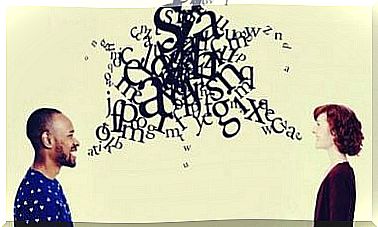Psychosocial Rehabilitation: Reconstructing Lives

Today we will talk about a therapeutic strategy, which can help many people who suffer from mental disorders. Psychosocial rehabilitation has made a name for itself among treatments that motivate patients to manage their symptoms.
Patients who try this method are often able to significantly improve their adaptability. This form of treatment is a holistic approach that promotes recovery and reintegration into the community. It also helps people improve their quality of life.
The primary goal of psychosocial rehabilitation is to develop skills and identify strengths. That helps improve the skills of patients suffering from some sort of psychological change.
In this way, patients with a chronic condition have the opportunity to pick up their lives and their relationship again. Until quite recently (the 1970s), patients with severe mental illness were usually institutionalized.
Today, however, people are working hard to destigmatize mental illness and promote self-reliance. The idea is to debunk stereotypes, fight prejudice, and help people with mental illness fully integrate into their communities.

Empowerment
Psychosocial rehabilitation is a process designed to help patients make a full recovery. It therefore focuses on empowerment and strategies to deal with the challenges the patient faces.
Because each patient is unique, this treatment is based on individualized programs. They help people with mental illness to find meaning, hope and opportunities for personal growth.
Psychosocial Rehabilitation Methods
While methods may vary, the main interventions include raising awareness of the condition, training cognitive skills, and providing support and lessons to help patients adapt to work and social life.
Many patients are completely unaware of their illness. During psychosocial rehabilitation, they learn to recognize the symptoms of their illness, ask for help if they notice the symptoms, and follow some guidelines for self-care.
Cognitive skills training is another important part of psychosocial rehabilitation. It focuses on attention and concentration techniques, as well as classification, planning and even memory. Patients also work on acquiring social skills for a personal and professional environment.
The main principles of psychosocial rehabilitation
Some basic principles guide the work of mental health professionals involved in psychosocial rehabilitation.
Primarily, this approach emphasizes the growth and development potential of each individual. It also focuses on educating patients about their right to self-determination. It places more emphasis on the individual’s strengths than on his or her illness and emphasizes the fact that everyone’s needs are different.

A holistic approach
This type of therapy affects several aspects, with the end goal of developing the patient’s skills. These are things like:
- social skills
- sense of self
- Troubleshooting
- resilience
- stress management
Experts in psychosocial rehabilitation report that people feel more positive about social connections at work when they feel productive. That, in turn, increases their self-esteem and helps improve their quality of life.
Having a place to live and social relationships are also part of the rehabilitation program. The aim is that patients with mental disorders can live at home as much as possible, alone or with family members. Shared housing is also a good option.
Patients suffering from mental illness often see their relationships deteriorate as a result of their condition. Training social skills such as verbal and non-verbal communication and empathy is important to make patients feel like they belong and to cover their basic socialization needs.
The effectiveness of psychosocial rehabilitation
A significant amount of scientific evidence supports the effectiveness of these treatments. Research shows that it positively affects patients whose mental health disorders negatively affect their quality of life. Many countries around the world use this approach.
Psychosocial rehabilitation helps patients recover their social lives, return to work and enjoy an independent life.









